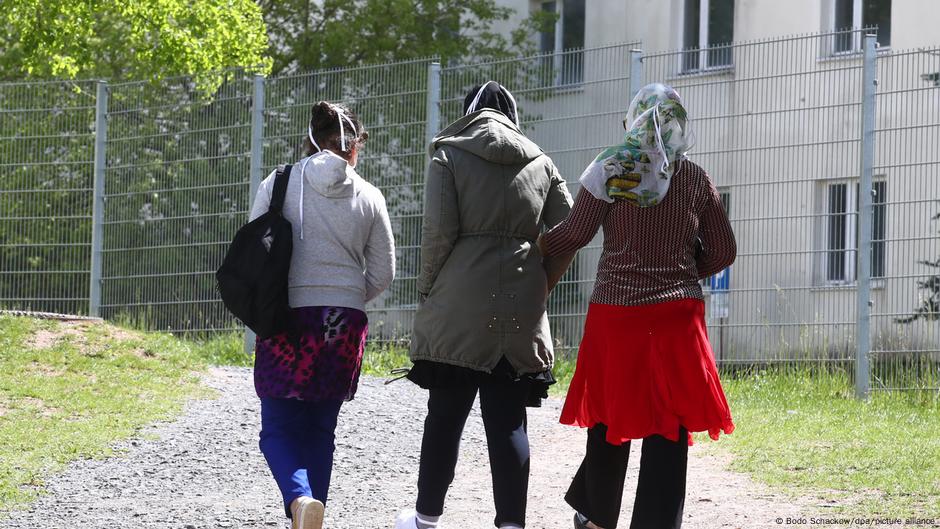
Challenges Faced by Female Refugees in Germany
In 2015, Germany opened its borders to hundreds of thousands of asylum seekers, many of whom came from Syria and Afghanistan. While the country offered safety and security, many women who arrived over the past decade have struggled to find employment. This raises important questions about the barriers they face and how these challenges are being addressed.
Donya, a former midwife from Afghanistan, arrived in Germany in 2016 with her son after her husband disappeared and she received death threats. “On my first night in Germany, I slept better than I had in years,” she recalled. Despite the sense of security, Donya continued to deal with trauma, which made it difficult for her to focus on finding work. However, after completing an eight-month training program and German language courses, she found a job as a care worker for the elderly. Though she finds the work unchallenging, she is hesitant to switch careers again.
Donya’s journey has been supported by the Work for Refugees project, run by GIZ / Society for Intercultural Coexistence and funded by the Berlin Senate. This initiative, along with other public and nonprofit programs, aims to address the unique challenges faced by refugees and help them integrate into the workforce.
A Threefold Disadvantage
Studies show that female refugees face a threefold disadvantage: they are disadvantaged as women, immigrants, and refugees. According to Maye Ehab, a researcher at the Institute for Employment Research (IAB), only 34% of women refugees are employed after eight years, compared to 85% of men. This disparity is due to several factors, including the need to care for children and limited access to language courses.
Many women arrive with young children, making it difficult for them to attend German classes or use government services. Additionally, a shortage of childcare workers means that spaces in daycare centers are often limited. This challenge is especially evident among Ukrainian women who fled to Germany after the Russian invasion in 2022.
Language Skills and Recognition of Qualifications
Language skills and the recognition of foreign qualifications are significant hurdles for many refugee women. Donya, for example, had no documentation to prove her medical training, which made it difficult to re-enter her profession. In Germany, formalized, certified training is often required, even if individuals have gained experience through on-the-job learning.
Afsaneh Afraze, a psychologist working with GIZ / Society for Intercultural Coexistence, criticizes the one-size-fits-all approach of integration courses, which provide 600 hours of German language tuition regardless of a person's educational background. She notes that this can be inefficient for those with prior education, such as herself, who had studied and could speak English but was placed in a class with someone who had never held a pen.
Integration Through Work and Support
The Work for Refugees Project emphasizes finding work first, according to its job adviser and counselor, Inna Gissa. A Ukrainian refugee herself, Gissa started her career in a hotel restaurant with minimal German skills, relying on her knowledge of English to secure the position. She believes that working is the best way to learn the language and build connections.
Counseling, job fairs, and mentoring are also crucial in helping refugees find employment. The Berlin-based project offers free one-to-one sessions, CV workshops, and assistance in finding suitable jobs. It also refers clients to organizations with specialized programs for women.
Tent Deutschland, an NGO, organizes job fairs and connects refugees with companies through its network of 80 businesses. These initiatives aim to create opportunities for refugees, particularly women, by offering training, mentorship, and employment.
ReDi School of Digital Integration, launched in 2015, provides digital skills training and access to a network of tech leaders. This environment has helped many refugees, like Hala Younis, a former teacher from Syria, relaunch their careers. Hala now works as a customer relationship manager at Zalando, thanks in part to her experiences at ReDi.
Grassroots Efforts and Role Models
Many grassroots projects are led by women who have themselves fled to Germany, such as Afsaneh Afraze and Inna Gissa. Their personal experiences give them a deeper understanding of the challenges faced by other women. Women refugee volunteers, like Donya, also serve as role models, providing support and encouragement to others.
“Donya can stand on her own two feet and she is helping other women,” said Afraze. “I think that is very important that we are like a human chain.” These efforts highlight the importance of community and solidarity in helping refugee women overcome obstacles and rebuild their lives.
